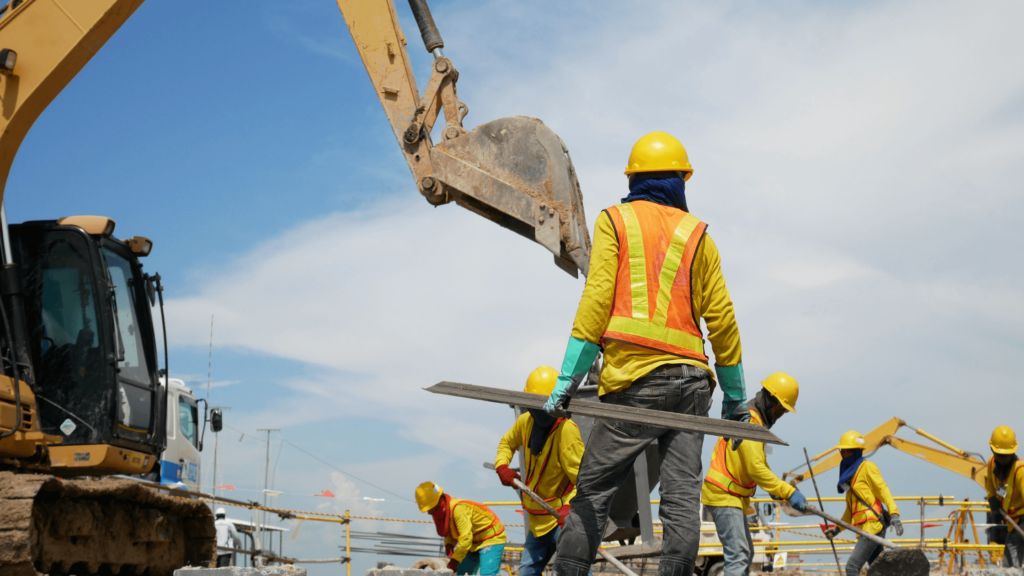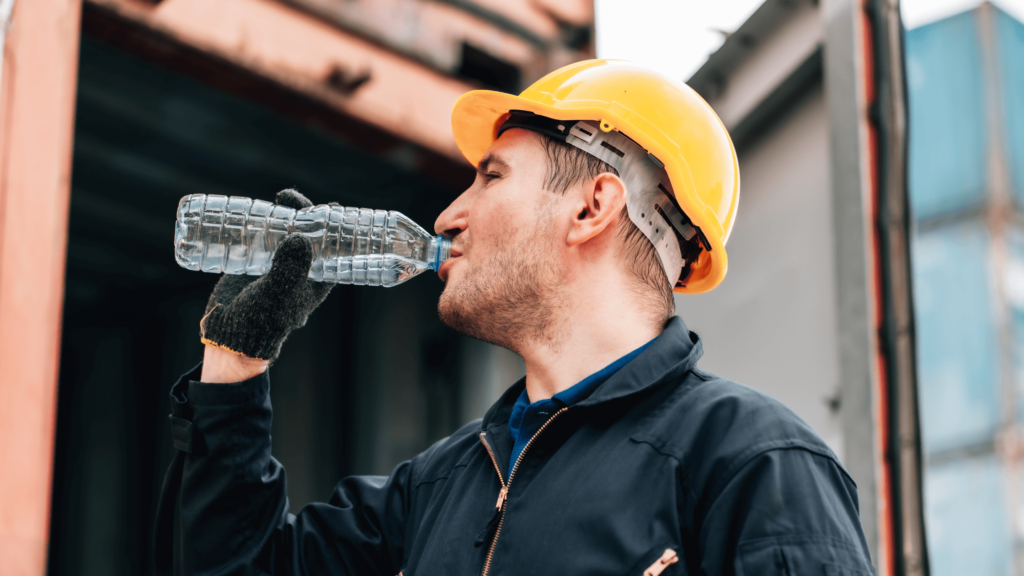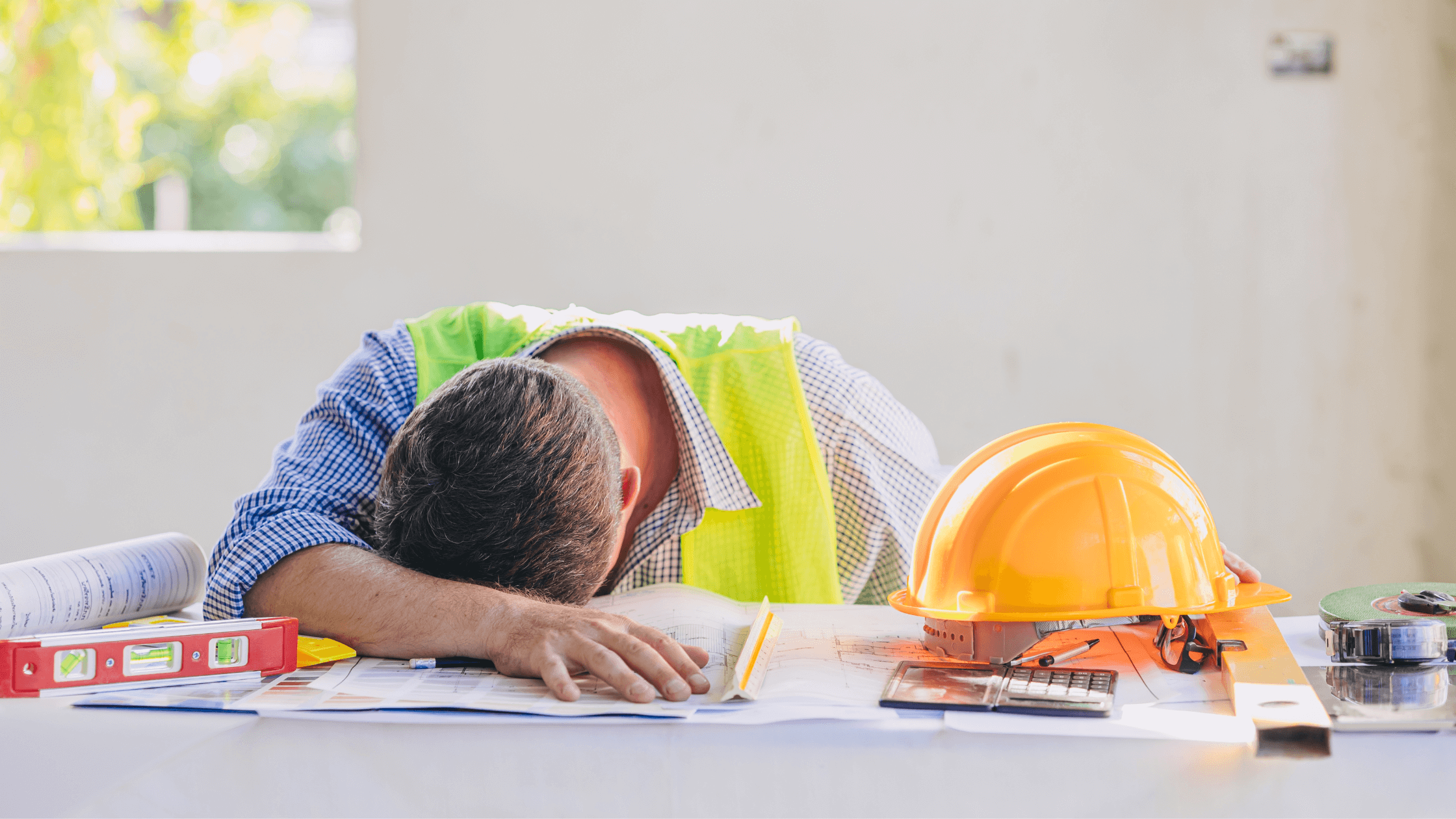Low energy can be frustrating, especially when it affects your daily productivity and overall well-being. Whether you’re dealing with long hours at work, poor sleep, or just the general hustle and bustle of life, cutting back on caffeine, supporting your gut, and getting sunlight are easy ways to increase energy levels that can make everything seem more manageable and less challenging.
Why you have low energy

Low energy can stem from various factors, especially in physically demanding fields like the trades. Long work hours, extended or irregular shifts, and high-stress environments are common in this industry, which can significantly contribute to fatigue. The body’s natural circadian rhythm, which regulates sleep and wake cycles, can be disrupted by these demanding schedules, leading to chronic tiredness and decreased alertness. Additionally, poor sleep quality, lack of proper nutrition, and excessive consumption of caffeine or alcohol can further exacerbate feelings of fatigue.
Whether you’re trying to get through a demanding workday at the site or simply looking to enhance your overall well-being, knowing how to increase energy levels can be a game-changer. Incorporating these simple yet effective strategies into your daily routine can turn the tide and boost your productivity.
9 tips to boost your energy and increase focus and productivity
1. Avoid processed foods and refined carbs

One of the quickest ways to drain your energy is through poor dietary choices. Consuming processed foods, sugar, and refined carbs can cause rapid spikes in your blood sugar levels, often followed by sudden crashes that leave you feeling sluggish and tired.
To maintain steady energy levels, focusing on a balanced diet tailored to your body is important. Each individual has slight variations in their food sensitivities that can alter how a person responds. Therefore, it’s important to optimize your food based on what makes you feel good and avoid bloating or energy crashes. In addition, choosing whole grains, lean proteins, healthy fats, and plenty of vegetables is typically a safe bet. These foods help stabilize blood sugar and provide sustained energy, keeping you alert and focused.
2. Feed your gut
A healthy gut microbiome is a must for anyone looking to increase energy levels. It helps improve nutrient absorption, leading to better uptake of vitamins, minerals, and proteins. The opposite is also true. When your gut is imbalanced due to poor diet, stress, or lack of sleep, it can lead to fatigue and lower energy levels as nutrient absorption decreases.
Improving your diet is a simple and effective way to improve your gut microbiome. Foods rich in probiotics, such as yogurt, kefir, and fermented vegetables, are a great start. Additionally, consuming fiber-rich foods like fruits and whole grains helps support gut health and can lead to improved energy levels.
Pro tip: Alcohol, sugar, industrial seed oils, and processed foods are some of the worst foods for gut health. Simply avoiding these can make a big difference in your gut microbiome.
3. Stay hydrated

Staying hydrated is crucial for maintaining energy levels, especially if you want to increase your energy during hot summer days. But it’s not just for hot days; dehydration can significantly impact your physical and mental performance, leading to fatigue, headaches, and difficulty concentrating. When your body lacks sufficient water, it struggles to carry out essential functions, such as regulating body temperature and transporting nutrients to cells, which can leave you feeling drained.
To avoid dehydration, drink at least eight cups of water per day, more if you’re physically active or working in a hot environment. An alternative approach is incorporating water-rich foods like fruits and vegetables into your diet. If plain water feels too monotonous, try infusing it with lemon, cucumber, or mint for a refreshing twist, or throw in a packet of electrolytes.
4. Cut back on caffeine
While caffeine can provide a temporary energy boost, excessive consumption can lead to long-term fatigue, particularly if it interferes with your sleep. Caffeine blocks adenosine, a chemical in your brain that promotes sleep, making you feel more awake. However, consuming too much caffeine, especially later in the day, can disrupt your sleep cycle, leading to poor sleep quality and increased tiredness the following day.
Limiting caffeine intake to 400 mg daily, roughly equivalent to four cups of coffee, is recommended. Try to avoid caffeine after 2 pm to prevent it from interfering with your sleep. If you’re particularly sensitive to caffeine, consider gradually reducing your intake to avoid withdrawal symptoms like headaches and irritability. Switching to herbal teas or decaffeinated coffee in the afternoon can help you wind down without sacrificing the energy boost.
5. Supplement with essential nutrients
If you’re looking into supplements to increase energy, B vitamins, iron, and magnesium are among the most effective options. For example, B12 and B6 are essential for converting food into energy, making them vital to prevent fatigue. B12, in particular, supports the formation of red blood cells, which carry oxygen throughout your body and ensure your muscles and brain have the fuel they need to function effectively.
Iron is another critical nutrient, especially for those at risk of anemia, a condition where your body doesn’t produce enough healthy red blood cells, leading to chronic tiredness and weakness. Women, in particular, may benefit from iron supplementation, especially if they have heavy menstrual cycles.
Magnesium is another nutrient you can supplement that’s great for energy. It’s involved in over 300 biochemical reactions in the body, including energy production. It helps convert food into energy and is essential for maintaining muscle and nerve function. Low levels of magnesium can lead to feelings of fatigue, muscle cramps, and even mental fog.
6. Prioritize sleep
Sleep is a no-brainer. Yet so many people in construction fail to get enough of it. While the early work hours are hard to avoid, there is a way to approach sleep strategically. The goal is to get 7-9 hours of sleep each night. Effective strategies that help you get a better sleep include:
- Silencing smartphone notifications after 8 pm
- Using black-out blinds
- Keeping the room cool (between 68° and 76°F)
- Going to bed early and at the same time each night
- Creating a relaxing bedtime routine
- Reducing blue light exposure
Sleep helps the body repair itself, consolidates memories, and processes the day’s activities, all of which are crucial for physical and mental energy. Avoiding heavy meals, caffeine, and alcohol before bed can also improve sleep quality, leaving you refreshed and energized for the day ahead.
7. Hit the gym or attend a fitness class

Regular exercise is a powerful tool for boosting energy levels and enhancing mental clarity. Physical activity stimulates the production of endorphins, chemicals in the brain that act as natural mood elevators, helping to reduce feelings of fatigue and stress. Moreover, exercise increases the number of mitochondria within your muscle cells, enhancing your body’s ability to produce energy.
Beyond physical benefits, exercise also promotes the release of brain-derived neurotrophic factor (BDNF), a protein that supports brain health by fostering the growth of new brain cells. This is particularly important for mental clarity and focus. Whether through weightlifting, cardio, or group fitness classes, engaging in fitness activities strengthens your body and sharpens your mind, making it easier to stay energized and productive throughout the day.
8. Reduce stress
Chronic stress is a major energy drain, affecting both your mental and physical well-being. When stressed, your body remains in a heightened state of alertness, which can lead to exhaustion over time. Exercise is one of the most effective ways to combat stress. It helps lower cortisol levels, the hormone associated with stress, and increases the production of endocannabinoids, which help regulate mood and promote a sense of calm.
Additionally, techniques like meditation, deep breathing exercises, and yoga can further reduce stress by calming the mind and improving your ability to manage daily challenges. Integrating stress-reduction strategies into your routine can lower cortisol levels and preserve your energy.
9. Get some sunlight
Exposure to natural sunlight, especially in the morning, is essential for regulating your body’s circadian rhythm, which governs sleep-wake cycles. Sunlight stimulates the production of serotonin, a hormone associated with mood elevation and focus, and helps your body produce vitamin D, which is crucial for energy levels. Spending just 10-30 minutes outside each day, preferably in the morning, can significantly improve your energy, boost your mood, and help regulate your sleep patterns, contributing to sustained vitality throughout the day.
Bottom line
Low energy levels can stem from various factors, including poor diet, lack of exercise, stress, and inadequate sunlight exposure. By understanding how to increase energy through lifestyle choices, such as eating a balanced diet, engaging in regular physical activity, managing stress effectively, and ensuring adequate exposure to natural light, you can significantly improve your energy levels and overall health.


